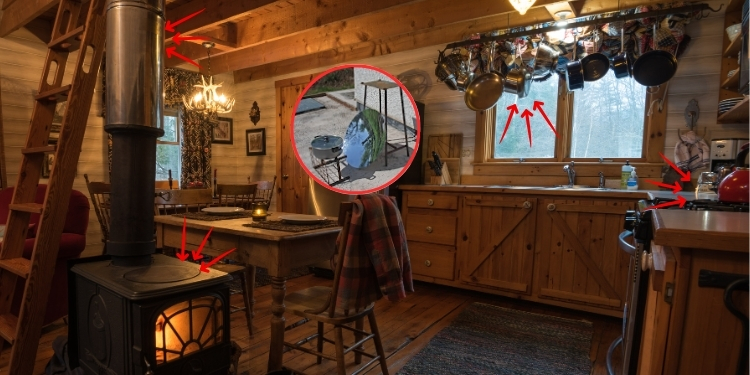It is an old axiom from one of the great boxers of all time: “Everyone has a plan till they get punched in the mouth.” This often-repeated phrase is used to explain how quickly things can turn into chaos.
What we have found through events like the riots of 2020 and the COVID-19 Lockdowns is that when people get “punched in the face” by calamity, we stay home. We bug in. We stay home when the world gets crazy and that makes perfect sense.
Your home is your survival headquarters. It’s where all of your gear, food, water, plans, people, and protection live. To leave that behind would take the threat of imminent death. So, we all should get really good at bugging in.
Developing your own bug-in kitchen will ensure that you can handle all the meals and food prep you need done in a day without it being a hassle and even without essentials like power.
#1 Bulk Spices
Buying in bulk is nothing new for most preppers. Are you buying spices in bulk? If you don’t cook lots of meals at home, then your 2-3oz bottles of chili powder might last you a very long time. The moment you start cooking 3 meals a day over an extended period you will find those little bottles don’t cut it.
Now is the time to upgrade to 18oz containers of spices.
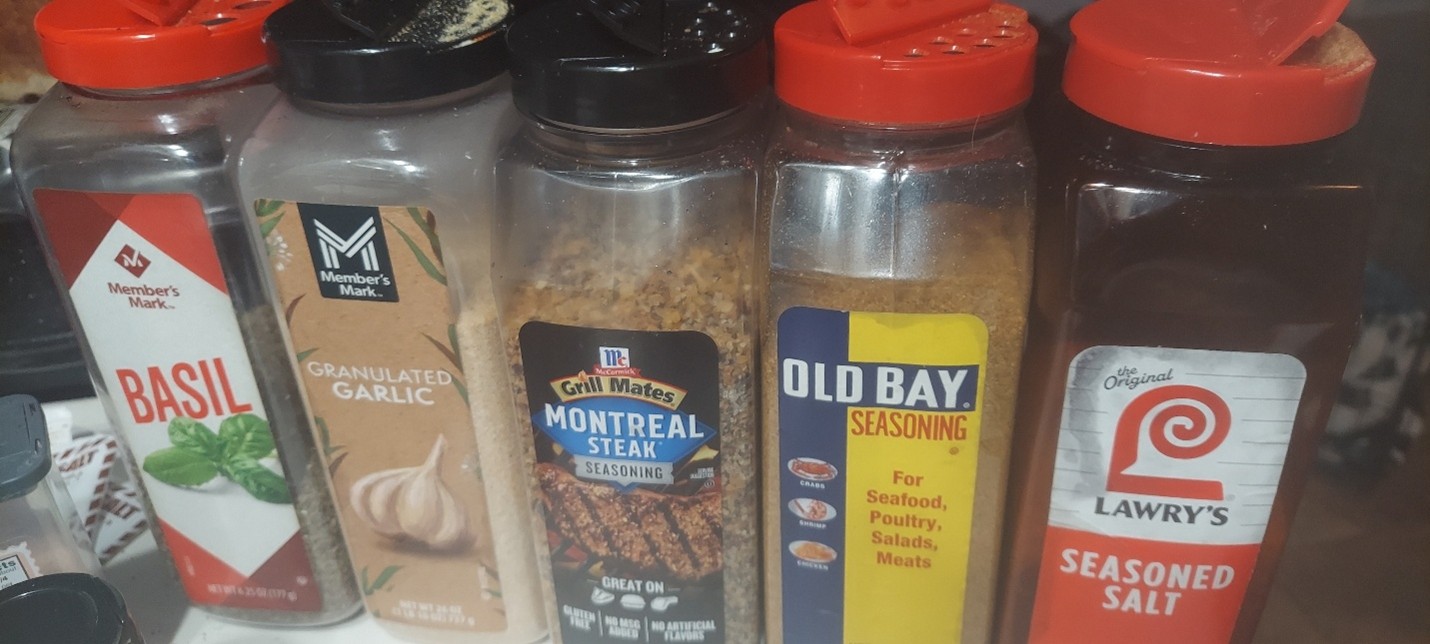
Some of the most common herbs and spices that you should buy in 18oz containers are:
- Ground Garlic
- Garlic Salt
- Black Peppercorns
- Chili Powder
- Dry Basil
- Dry Oregano
- Dry Sage
- Red Chili Flake
- Italian Seasoning
- Seasoned Salt
- Cinnamon
These are my recommendations but if you make a bunch of curry or have your own preferences then store in bulk what you use the most.
While you’re storing spices, consider also learning how many of these herbs double as powerful remedies. Here’s what you could use some of them for:
Dr. Nicole Apelian’s Forgotten Home Apothecary teaches you how to make 250+ natural remedies made from plants, spices, and roots, many of which you likely already have in your kitchen.

#2 Naked Food Prep
In the early 2000s, a popular chef named Jamie Oliver published a book called The Naked Chef and used the play on words to both grab attention and explain his hands-on, no-machine, take on cooking.
You should learn to cook naked, too! Should the power go out in your home, would you be able to make dough without a kitchen aid? Could you chop and mince ingredients without a food processor?
This might take some effort, but in time your forearms will get strong, your knife skills will improve, and you will be able to prepare food in any situation.
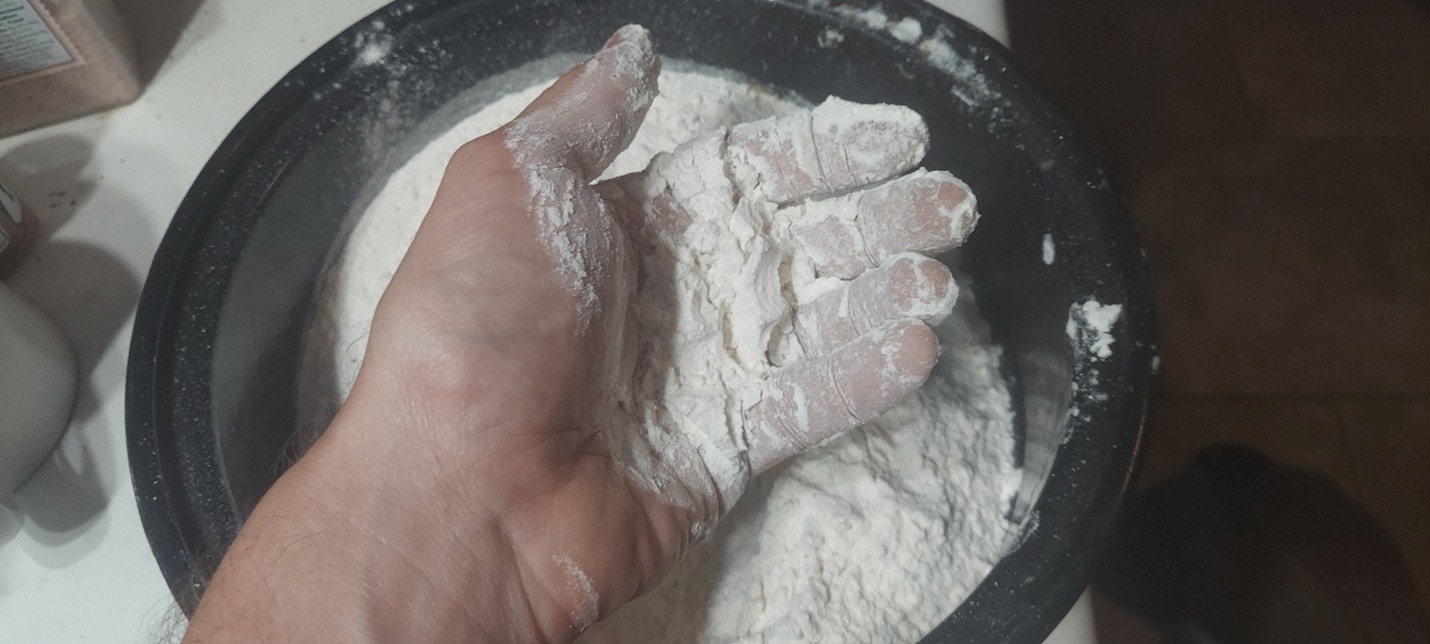
#3 Get the Sun Involved
The life-giving sun hits us with 173,000TWh (terawatt hours) of power every single hour! A terawatt is equivalent to 1 TRILLION watts of solar energy.
Meanwhile, we are doing all of our cooking and food prep over charcoal and a glowing coil that is powered by electricity. The sun can do all kinds of cooking, dehydrating, and drying for you.
One of the best investments I made years ago was by the All American Sun Oven. This solar oven is big and effective. It gives you the ability to cook whole meals and even bake bread with nothing more than the power of the sun!
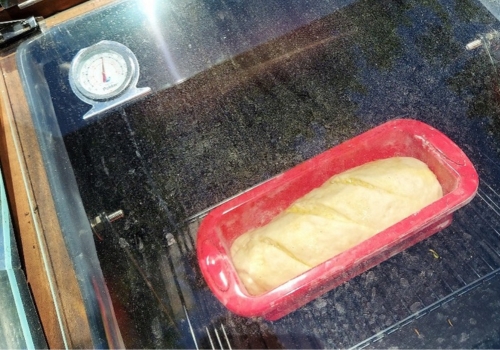
You can also build your own solar oven if you are more of a DIYer.
Other ways you can use the sun is by building a solar dehydrator, simply hanging herbs and thin sliced vegetables and fruits in a place that gets lots of sun will dry them for longer storage.
#4 Add Stones for Baking
Years ago, I put the bottom portion of a ceramic planter into my oven. This was strictly to make better pizza at home. Long before they were selling pizza stones for your oven and freshly made pizza dough at supermarkets.
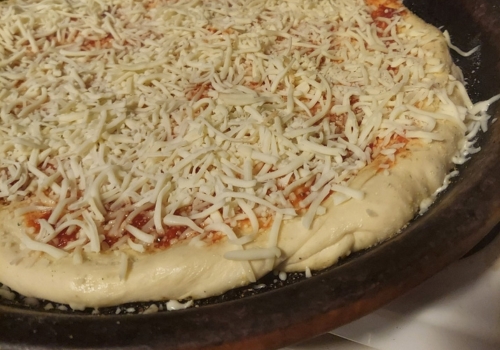
It’s a trick that works. The stone holds heat really well. You can use this stone for much more than pizza, though. I use it to bake bread in my oven at home. Things like crusty rolls, sourdough boules, and even simple baguettes can be cooked directly on the stone in a 450 degree oven.
#5 Stockpile Good Oils
One of the first things the average person is going to run out of is cooking oil. Even preppers hardly keep enough of this stuff lying around.
Fats and oils are one of the toughest things to source. Do you know how to turn an olive into oil? As preppers we are pretty resourceful, but this is a tough one. It’s better to store plenty of oils and fats in your kitchen.
Now, oil and fat will spoil in time, so this is not a long term purchase to sit around forever. Store larger amounts of the types of oils you always use. This way you will rotate your stock.

You might also consider canning some lard. Lard is just God’s gift to the world. Don’t be afraid of it. It makes the best Christmas cookies you’ll ever taste!
Now here’s a pro tip: you can stockpile all the food and oils you want… but without clean water, you’re done. Most preppers have filters and bottled water, but few think long-term. What happens when the well dries or your Berkey breaks? That’s where the Ultimate Clean Water Generator comes in.
This backpack-sized ingenious device pulls moisture straight from the air and turns it into clean, drinkable water — even in dry conditions. You don’t need a stream, a pump, or rain.
#6 Make Double
This is a sneaky trick to put up more food. When you are making a batch of something like Spaghetti sauce or chili make 2x what you normally need for your family. By doing this you will have a ton of leftovers.

These leftovers go right into canning jars and get canned that night. Then you have meals going right into the pantry for that moment when you don’t have time to cook or a disaster has struck and you need a quick, healthy, home-cooked meal.
Storing food properly and knowing how to make long-lasting food can take you a long way in a crisis. Back in the Cold War, the U.S. military created a “Doomsday Ration” designed to keep Americans alive during a major catastrophe — for just $0.37 a day (see the exact recipe here) This recipe was simple, calorie-dense, and shelf-stable.
You can discover the exact recipe, plus 125 other survival foods that helped people live through the Great Depression, two world wars, and long-term famines in The Lost SuperFoods.
#7 Add an Alternative Stove
If the power goes out, your electric stove goes with it. Suddenly, your main cooking option
There are a lot of options out there, but you should have more than one way to cook food in pots. Even something as simple as the propane burner on your grill can be an option. I am a HUGE fan of the Coleman 2 burner camping stove they call the TITAN these days.
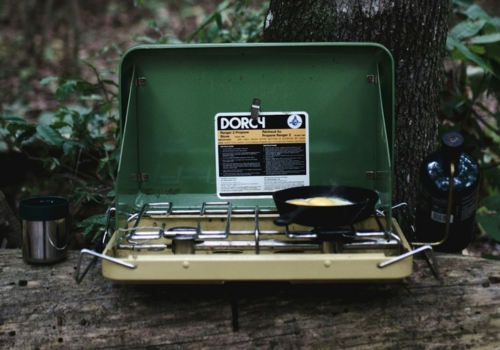
With an adapter, you can connect your 20lb propane tank to this stove and cook for days off that tank. It is a great backup system. You should use propane and alternative gas stoves outdoors for safety.
Installing a wood stove is another great option for you to consider. They are more expensive than our previous recommendations but can serve both as an off grid stove and heater.
Here’s another tip: The Amish have been cooking off-grid for generations. Their alternative methods for food preservation, cooking (such as the biomass stove), and even off-grid refrigeration are simple and effective — and you’ll find them all in The Amish Ways Book.
Final Thoughts
As you can see it doesn’t take much to disaster proof mealtime. When the lights go out, we have plans. We have a blackout kit. What most people don’t consider is getting food prep back up and running.
In a short-term power outage Mountain House meals might save the day. However, if the power goes out for a long time, then you are going to have to cook multiple meals a day. Even if that is emergency food, you still need to be able to prepare it.
What are some things you have added to your bug in kitchen? Let’s share the wealth of knowledge in the comments below!
Build your own underground bunker – a secure, hidden space to store food, water, and survival gear in a crisis. Best of all, it costs less than $400 (yeah, cheaper than an iPhone). The Easy Cellar guide makes it simple, even if you’ve never picked up a shovel, giving you and your family peace of mind when it counts.
You may also like:

Food Prepping Skills I Learned in the Military
The Under $1 Walmart Canned Goods You Absolutely Need to Add to Your Food Reserves (Video)
Foods You’ve Been Storing Wrong Your Whole Life
If You Notice This, Stop Eating Your Canned Food
Read the full article here

